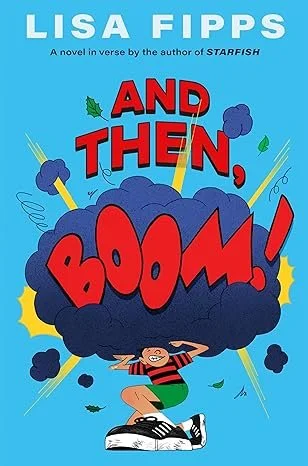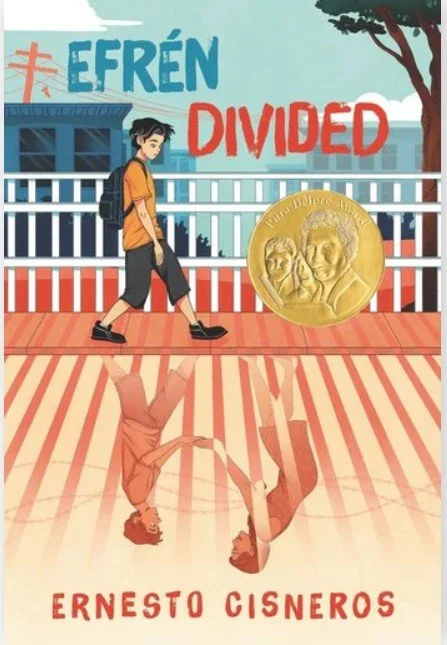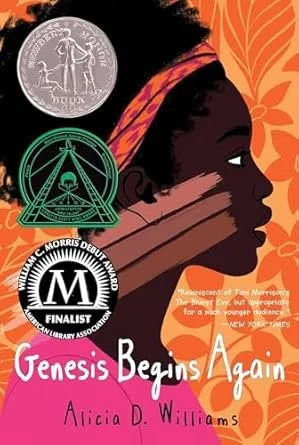7 Books That Build Empathy for Our Community’s Kids
This morning, as we drove to set up a back-to-school breakfast for our neighborhood school, my ten-year-old asked me, “Mama, is this school a safe school for immigrants? I told him it was, and he nodded. “Just like our school.” We talked a few moments about how most folks who work at schools love all children, and the conversation dropped off from there.
My children have a remarkably safe and stable world, but the same is not the case for a lot of their friends and our neighbors. I think this is something we know as a church to some degree, but I want to share some books I recommend highly for those who want to get inside the world of kids in our community.
I invite you to choose one (they’re mostly middle grade or young adult, so they are fast reads) as a way to stand in solidarity with kids as they begin a new school year. Can we step into their shoes with our imaginations, at the very least?
And Then, Boom! by Lisa Fipps (8+)
Lisa Fipp’s book Starfish could also make this list (a breathtaking book about fatphobia and family systems), but for our context at Immanuel, And Then, Boom! could be written by kids we know and love. I listened to this on one the library app Libby, and almost had to stop the car at one of the heartbreaking moments of Joe’s experience of neglect and survival. You can read the whole description here but I would sum it up saying this book immerses you in the compounding effects of poverty and parental instability from a kid’s perspective. It deals with homelessness, foster care, and food insecurity but manages to be hopeful, though, and the mutual care that emerges in his world will stay with me. An amazing read to help kids know they aren’t alone or to help kids understand their classmates’ realities. (10+)
Free Lunch by Rex Ogle (12+)
I listened to this one while painting the Sunday school space in the lower level, preparing to welcome IMC kids while thinking of name after name of kids I’ve met while passing out invitations for neighborhood events. Rex has to deal with food insecurity and assistance, cross-cultural realities, exposure to dangerous behavior by his buddies, physical and emotional abuse, neglect, and having to care for his younger brother. I would say I’m an extremely sensitive reader, and while hard to stomach, these depictions were not graphic or too traumatic. This memoir of Rex Ogle’s 6th grade year is disturbing, but I would say it should be required reading for any of us wanting to connect more deeply with kids who have deeply different realities than our own. Rex Ogle himself is an inspiration…he’s now written 100+ books, and made it through so much uncertainty.
Efrén, Divided Ernesto Cisneros (10+)
This book was published in 2019 but couldn’t be more timely today. Efrén is the oldest sibling of three kids with hardworking parents. He is a citizen, but his parents are not. When his mom is caught in an ICE raid and deported to Mexico, he has to find a way to keep living his life in the U.S. while trying to reunite his family. If you want to step into the perspective of our immigrant neighborhood kids (the main character is a 7th grader, just like my oldest child), this story will help center a child’s perspective in the swirl of immigration policies and insecurity.
Genesis Begins Again by Alicia D. Williams (12+)
Genesis is a thirteen-year-old girl navigating the instability of her father’s gambling and alcohol addictions that mean they often are evicted and have to change homes. Her circumstances improve, and she begins a new season but deals with deep self-doubt and hate because of the color of her skin. I appreciated the conversation about colorism and its effects on kids and teens— it was something I heard over and over in my classroom between my BIPOC students. This book helps us understand internalized racism, and because of music, has a hopeful thread that keeps it readable and relatable.
Piecing Me Together by Renee Watson (10+)
This book took my breath away more than once. It is a must-read for those of us who see ourselves as helpers in any community. When Jade gets a chance to attend a school in a privileged community she has to grapple with class, race, gender, and toxic sympathy. As Jade tries to find her place in the world, I was impressed by her perspective on how opportunities and well-meaning folks can be demeaning or dehumanizing, even while they empower. As we seek to work with families in our neighborhood, those of us with privilege can develop deeper empathy for kids who are “making it out” of worlds we don’t fully understand.
Louder Than Hunger by John Schu (10+)
This semi-autobiographical fiction story in verse is another book that I didn’t know we needed until I read it. There are so few books from a male perspective on disordered eating, and this one manages to be funny and hopeful, somehow. The conversations I have with my own children about the mental health of their friends, especially pain surrounding body image, family stress, sexuality, and depression convince me that we as adults need to read more books like these that invite us to hear from kids struggling to control what they can in a world gone mad. This book is helpful to understand tweens/teens dealing with anorexia, anxiety, OCD, depression, and secret pain.
Maddi’s Fridge by Lois Brandt
Lastly, I’m including a simple picture book for families with younger kids who want to begin building empathy for their classmates. You can actually watch someone reading the full story here. This book helps us understand invisible food insecurity and how to look out for one another. As a parent, I appreciated especially how the book deals with “telling” or “breaking a promise,” and how kids might need help in supporting a friend. Maddi and Sofia navigate this tricky subject together, and it’s a great introduction to things like the Backpack Program we have in our city schools that helps families get food outside of the classroom.
I’d love to know what you would add to this list or if you choose to read any of these insights into the worlds of the kids we hope to know and love. May we enter into a new school year with eyes and ears wide open, ready to walk with those whose experiences we want to understand.






